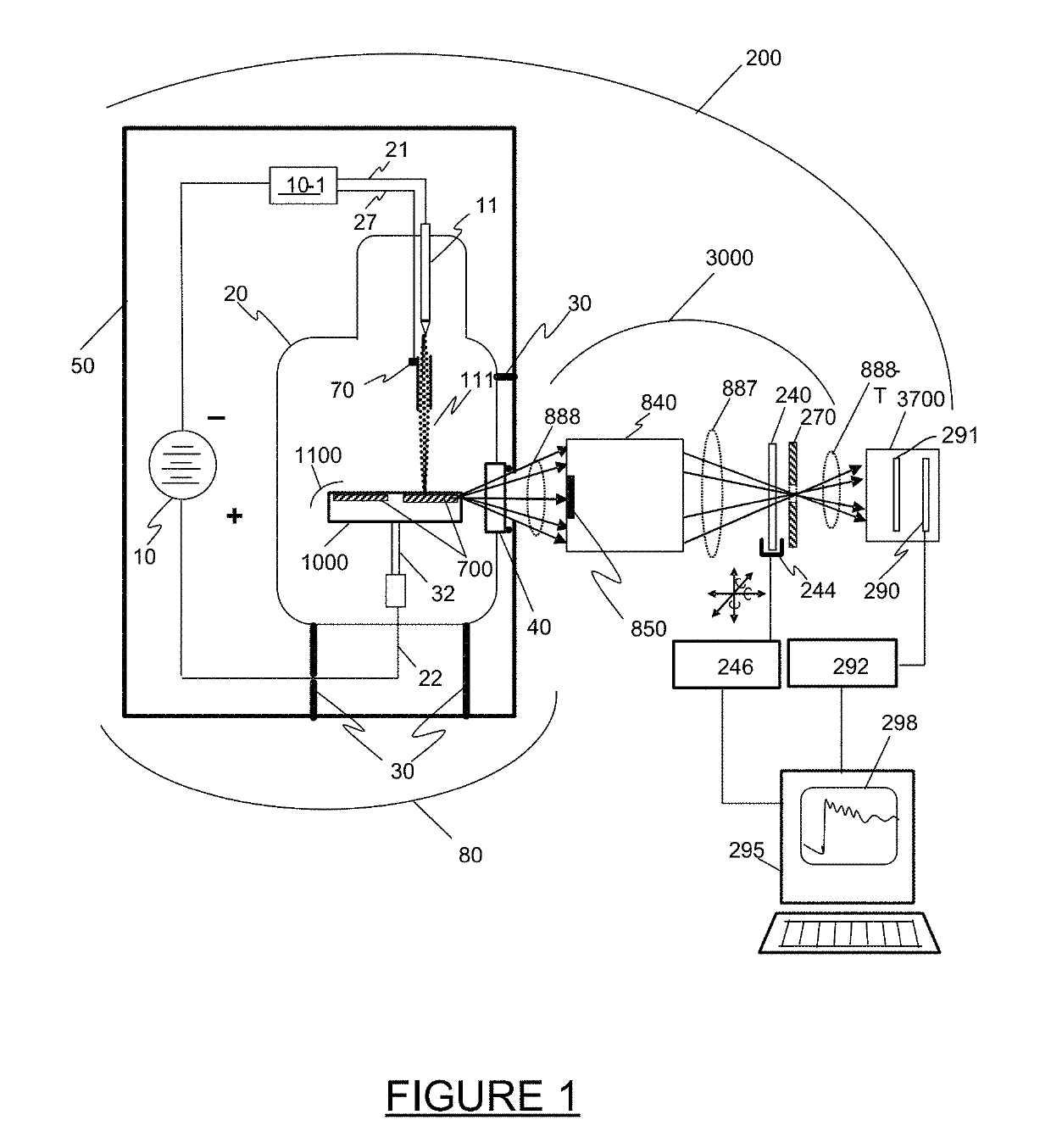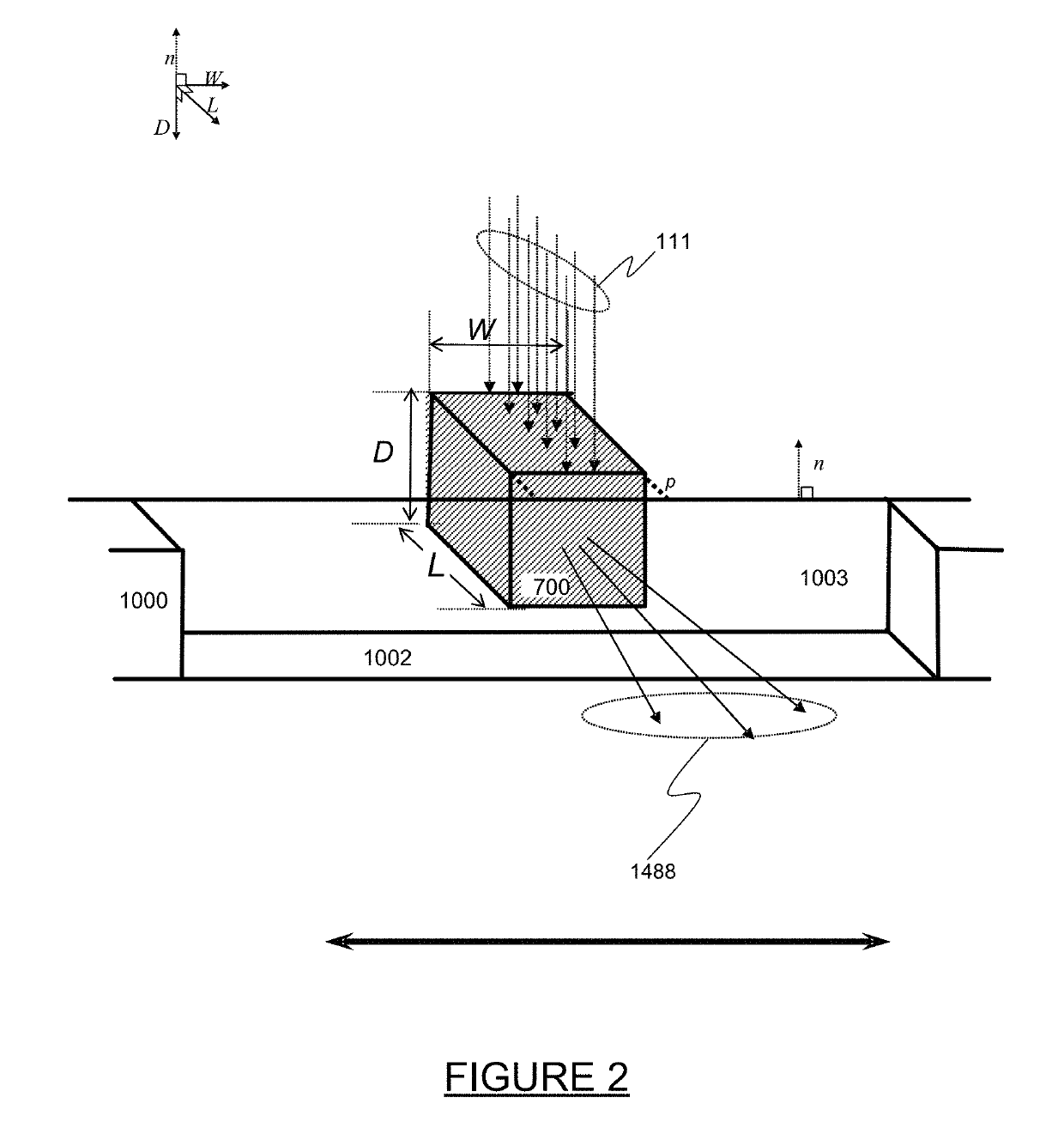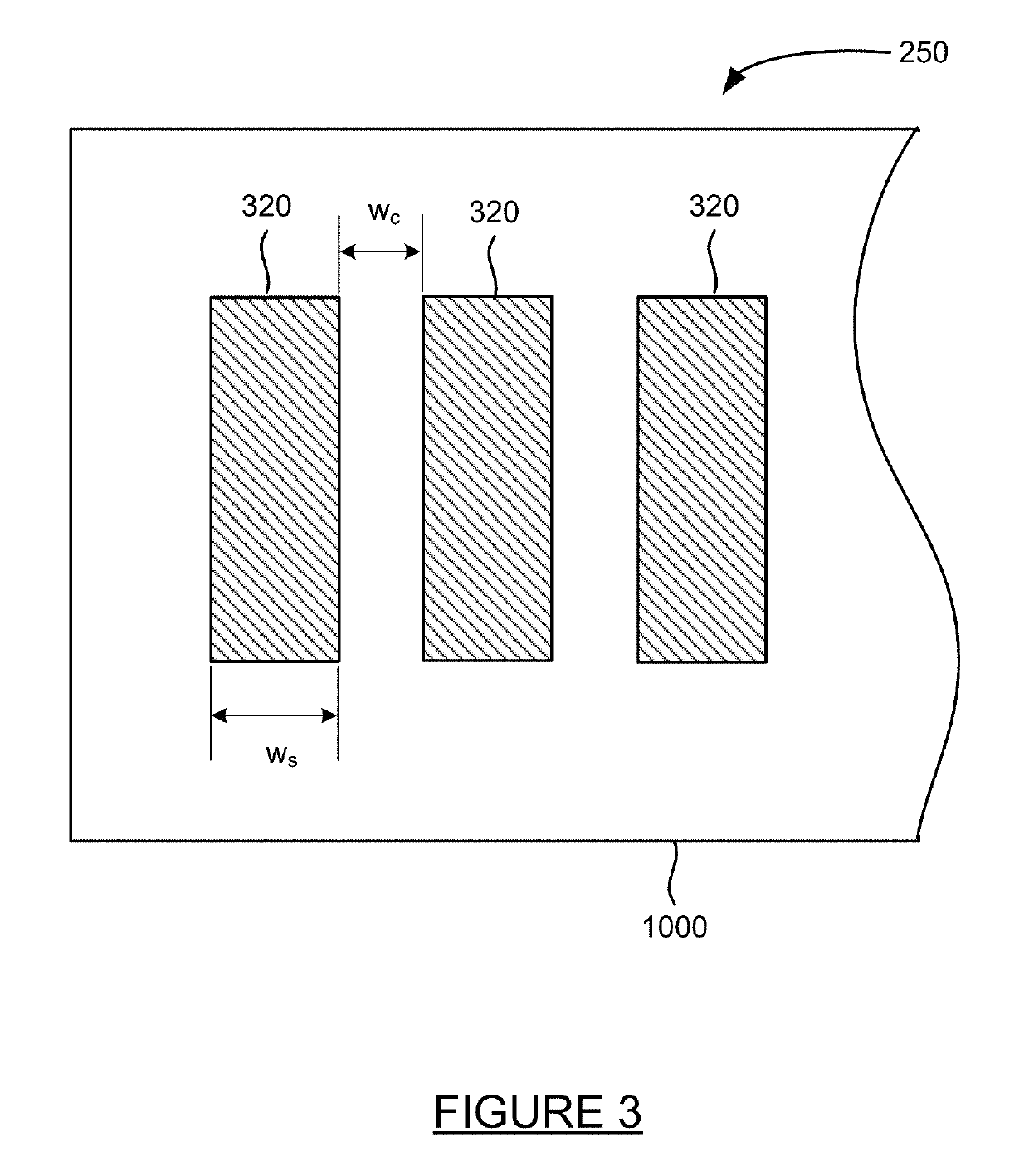Method of performing X-ray spectroscopy and X-ray absorption spectrometer system
a technology of x-ray absorption spectroscopy and x-ray spectroscopy, which is applied in the field of performing x-ray absorption spectroscopy and an x-ray absorption spectrometer system, can solve the problems of limited material absorption ability, limited application in the laboratory, and inability to absorb energy, etc., and achieves improved x-ray generating material heat removal efficiency, high thermal conductivity, and high electron density
- Summary
- Abstract
- Description
- Claims
- Application Information
AI Technical Summary
Benefits of technology
Problems solved by technology
Method used
Image
Examples
Embodiment Construction
1. A Basic Embodiment of the Invention.
[0036]FIG. 1 illustrates an embodiment of an x-ray spectrometer system 200 comprising an x-ray source 80, an x-ray optical system 3000 that includes an object 240 to be examined by x-ray transmission, also referred to as a sample by those skilled in the art, a spectrometer 3700 comprising a detector 290 and a crystal 291, and signal processing electronics 292 and an analysis system 295 with a display 298. The object 240 to be examined will also be referred to as the sample hereinafter.
[0037]The source 80 comprises a vacuum environment (typically 10−6 ton or better) commonly maintained by a sealed vacuum chamber 20 or active pumping, and manufactured with sealed electrical leads 21 and 22 that pass from the negative and positive terminals of a high voltage source 10 outside the tube to the various elements inside the vacuum chamber 20. The source 80 will typically comprise mounts 30 which secure the vacuum chamber 20 in a housing 50, and the hou...
PUM
| Property | Measurement | Unit |
|---|---|---|
| energy bandwidth | aaaaa | aaaaa |
| energy bandwidth | aaaaa | aaaaa |
| energy resolution | aaaaa | aaaaa |
Abstract
Description
Claims
Application Information
 Login to View More
Login to View More - R&D
- Intellectual Property
- Life Sciences
- Materials
- Tech Scout
- Unparalleled Data Quality
- Higher Quality Content
- 60% Fewer Hallucinations
Browse by: Latest US Patents, China's latest patents, Technical Efficacy Thesaurus, Application Domain, Technology Topic, Popular Technical Reports.
© 2025 PatSnap. All rights reserved.Legal|Privacy policy|Modern Slavery Act Transparency Statement|Sitemap|About US| Contact US: help@patsnap.com



